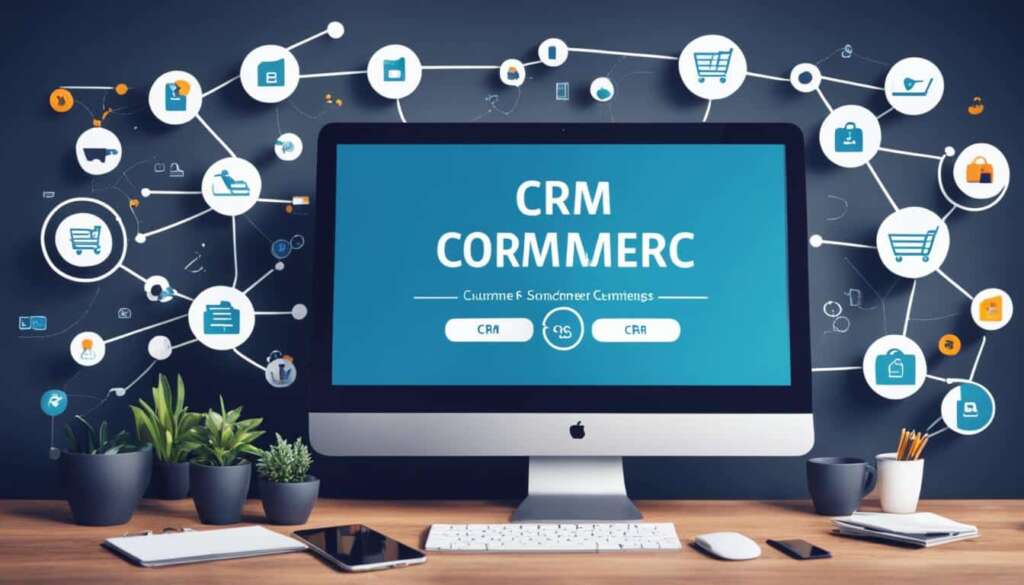Table of Contents
E-commerce accounts management is a crucial aspect of running a successful online business. Efficiently managing your e-commerce accounts can help drive sales, streamline operations, and improve customer satisfaction. In this article, we will explore key tips and strategies for effective e-commerce accounts management.
Managing your e-commerce accounts involves handling various tasks such as tracking inventory, handling customer inquiries, and monitoring sales performance. By utilizing innovative web solutions like Meesho Account Management Service and Flipkart Account Management Service, you can simplify these processes and make smarter decisions for your business.
These account management services offer intuitive interfaces, automated order processing, inventory tracking, and detailed reporting. With real-time insights, you can optimize your inventory and stay ahead of the competition. By leveraging the benefits of e-commerce account management services, you can enhance your online presence and boost your bottom line.
Stay tuned for the following sections where we will delve into the importance of e-commerce accounting, key components of e-commerce management, and how to effectively manage your e-commerce business.
The Importance of E-commerce Accounting
As e-commerce businesses grow, managing finances becomes more complex. Proper accounting systems are essential for categorizing and analyzing financial data, generating reports, and forecasting.
Bookkeeping is the practice of maintaining financial records, while accounting involves analyzing the records to create financial reports and models.
Two types of accounting systems commonly used in e-commerce are cash basis accounting and accrual method. Cash basis accounting records transactions when cash is received or spent, while accrual accounting records transactions when they occur, regardless of cash flow.
E-commerce businesses need to choose the accounting method that best suits their size and needs. Implementing accounting software and having key components in place, such as a business tax ID number, a separate business bank account, and reliable payment processing and security measures, are crucial for successful e-commerce accounting.
The Value of Proper Accounting Systems
“Accurate financial data is the backbone of sound decision-making in e-commerce. With proper accounting systems in place, businesses can gain a comprehensive understanding of their financial health, identify areas for improvement, and make informed strategic choices.” – John Smith, CFO of XYZ E-commerce
Proper accounting systems provide several benefits for e-commerce businesses:
- Accurate Financial Reporting: By maintaining accurate records and regularly analyzing financial data, businesses can generate comprehensive reports, including balance sheets, income statements, and cash flow statements. These reports provide insights into the financial performance and position of the business.
- Effective Financial Planning: Accounting systems enable businesses to forecast future revenues and expenses, helping with budgeting and financial planning. This allows businesses to allocate resources effectively and make strategic decisions based on anticipated financial outcomes.
- Compliance with Tax Regulations: Implementing proper accounting systems ensures compliance with tax laws and regulations. It helps businesses keep accurate records of their income, expenses, and tax liabilities, minimizing the risk of audits, penalties, and legal issues.
- Business Growth: With accurate financial data at their disposal, e-commerce businesses can identify trends, monitor performance, and make data-driven decisions to drive growth. Accounting systems provide valuable insights into which products or marketing strategies are most successful, enabling businesses to focus their efforts and resources where they will have the greatest impact.
Choosing the Right Accounting Method
When it comes to e-commerce accounting, choosing the right accounting method is crucial. Cash basis accounting is simpler and more straightforward, recording transactions when money is received or spent. This method is suitable for smaller e-commerce businesses with straightforward cash flow.
Accrual accounting, on the other hand, records transactions when they occur, regardless of cash flow. This method provides a more accurate picture of a business’s financial health and performance, as it takes into account revenue and expenses when they are earned or incurred.
E-commerce businesses should consider their size, industry, and specific needs when choosing the accounting method that best suits them. It is recommended to consult with an accountant or financial advisor to determine the most appropriate accounting method for their business.
Key Components of E-commerce Management
E-commerce management encompasses various crucial components that are instrumental in ensuring the success of an online business. To effectively navigate the dynamic e-commerce landscape, businesses must pay close attention to the following key areas:
Inventory Management
Proper inventory management is essential in e-commerce. It involves meticulous tracking of stock levels, monitoring product demand, and strike a balance between supply and demand. By implementing robust inventory management systems and practices, businesses can optimize their stock levels, minimize lead time, and avoid stockouts or overstocking.
Order Fulfillment
Efficient order fulfillment is vital for enhancing customer satisfaction. It encompasses the entire process of processing and delivering customer orders promptly and accurately. By investing in streamlined order fulfillment systems and reliable logistics partners, businesses can ensure timely delivery, minimize errors, and provide exceptional customer service.
Customer Relationship Management (CRM)
Building and maintaining strong relationships with customers is critical in e-commerce. Effective customer relationship management involves collecting and analyzing customer data, segmenting customers based on their preferences, and delivering personalized communication. By leveraging data-driven insights, businesses can enhance customer engagement, improve retention rates, and foster long-term loyalty.
Payment Processing and Security Measures
Secure and seamless payment processing is fundamental in e-commerce. Implementing robust payment processing systems and adherence to stringent security measures protect customers’ financial data and facilitate hassle-free transactions. Trust and confidence in payment security are vital to building customer trust and encouraging repeat purchases.
Website Performance and Optimization
A fast, user-friendly, and optimized website is essential for delivering an exceptional online shopping experience. Businesses must focus on enhancing website performance by optimizing page load times, ensuring mobile responsiveness, and providing an intuitive navigation system. By providing a seamless browsing and purchasing experience, businesses can maximize customer satisfaction and reduce bounce rates.
Marketing and Sales Strategies
Effective marketing and sales strategies are critical in attracting potential customers and driving revenue growth. By implementing data-driven marketing campaigns, businesses can identify target audiences, create compelling content, and leverage social media and SEO techniques to increase brand visibility and drive traffic to their online stores. Utilizing strategic sales tactics like upselling and cross-selling can also boost average order values and maximize revenue.
To ensure success in the competitive e-commerce landscape, businesses must devote attention to these key components and foster their seamless coordination. By effectively managing inventory, streamlining order fulfillment, nurturing customer relationships, prioritizing payment security, optimizing website performance, and implementing targeted marketing and sales strategies, businesses can thrive and achieve long-term growth.

The Role of E-commerce Management in Business Success
E-commerce management plays a vital role in ensuring the success of a business. With the rise of online shopping, effective e-commerce management has become more important than ever. By employing key strategies and utilizing data-driven decision-making, businesses can optimize their operations and maximize their revenue potential. Let’s explore the critical components of e-commerce management that contribute to overall business success:
Data-driven Decisions
One of the most significant advantages of e-commerce management is the ability to make data-driven decisions. Through the use of analytics and tracking tools, managers can collect valuable insights about customer behavior, sales trends, and website performance. By analyzing this data, businesses can gain a deeper understanding of their target audience and tailor their strategies accordingly. Whether it’s identifying high-converting marketing channels or optimizing product recommendations, data-driven decisions allow businesses to allocate resources efficiently and make informed choices that lead to growth.
Performance Tracking
Tracking and monitoring performance is essential for measuring the effectiveness of marketing campaigns, sales initiatives, and overall business operations. By establishing key performance indicators (KPIs) and regularly analyzing performance metrics, e-commerce managers can identify areas for improvement and make necessary adjustments. Whether it’s optimizing conversion rates, reducing cart abandonment, or improving website load times, performance tracking enables businesses to identify bottlenecks and implement targeted solutions that drive growth.
Revenue Maximization
Revenue maximization is a top priority for any e-commerce business. E-commerce management plays a crucial role in achieving this goal by implementing effective strategies to increase sales and maximize average order value. Through techniques such as segmentation, personalization, and upselling, businesses can tailor their offerings to specific customer segments, increasing the likelihood of conversion and driving higher revenue. By continuously analyzing sales data and identifying revenue opportunities, e-commerce managers can implement targeted strategies that lead to sustained growth.
Customer Retention
Customer retention is vital for the long-term success of any e-commerce business. E-commerce management focuses on building and maintaining strong customer relationships through personalized communication, loyalty programs, and exceptional customer service. By leveraging customer data and implementing retention strategies, businesses can increase customer loyalty, drive repeat purchases, and foster brand advocacy. By prioritizing customer retention, e-commerce managers can establish a loyal customer base that contributes to sustained revenue growth.
Website Optimization
Website optimization is crucial for providing an optimal user experience and driving conversions. E-commerce management involves continuous monitoring and optimization of website performance, ensuring fast load times, mobile responsiveness, and intuitive navigation. By conducting regular website audits, implementing SEO best practices, and optimizing the user interface, businesses can enhance the overall customer experience, improve search engine rankings, and increase conversion rates. Website optimization is an ongoing process that requires constant monitoring and adaptation to deliver optimal results.
In summary, e-commerce management plays a pivotal role in driving business success. From making data-driven decisions to tracking performance, optimizing revenue, retaining customers, and optimizing website performance, effective e-commerce management ensures alignment across all aspects of the business. By harnessing the power of these strategies, businesses can achieve increased profitability and sustained growth in the competitive e-commerce landscape.
| Benefit of E-commerce Management | Description |
|---|---|
| Data-driven decisions | E-commerce managers can make informed decisions by analyzing data and leveraging insights to optimize business strategies. |
| Performance tracking | Monitoring key metrics enables managers to track progress, identify areas for improvement, and make necessary adjustments. |
| Revenue maximization | By implementing targeted strategies like segmentation and personalization, businesses can increase sales and maximize revenue. |
| Customer retention | Building strong customer relationships and implementing retention strategies foster loyalty and drive repeat purchases. |
| Website optimization | Optimizing website performance enhances user experience, improves search engine rankings, and increases conversions. |
How to Manage Your E-commerce Business
Managing an e-commerce business requires a strategic approach. By implementing effective e-commerce business management strategies, you can set your business up for success and achieve your goals. Here are some key practices to consider:
Establish a Clear Vision and Identity
Having a clear vision and identity for your e-commerce business is crucial for guiding decision-making and brand development. It helps determine your target audience and the value you aim to deliver. Understanding your unique selling points and positioning yourself in the market will contribute to your business’s long-term success.
Invest in Your Team
Building a strong team is essential for the smooth operation of your e-commerce business. Whether you hire in-house employees or work with external partners, investing in individuals with expertise in areas such as production, marketing, sales, and development will help you establish a solid foundation. Collaborating with experienced professionals can bring fresh perspectives and drive innovation.
Invest in Your Tools
Utilizing the right tools is key to streamlining operations and maximizing efficiency. Tools like Upscribe can automate various tasks, saving you time and money. Consider investing in e-commerce management software that can integrate with your existing systems and provide valuable insights into your business performance.
Track and Monitor Performance
To make informed business decisions, it is crucial to track and monitor key performance indicators (KPIs). Set specific goals and regularly assess your progress against these metrics. By understanding how different aspects of your business are performing, you can identify areas for improvement and make strategic adjustments.
“By understanding how different aspects of your business are performing, you can identify areas for improvement and make strategic adjustments.”
Be Adaptable and Responsive
The e-commerce landscape is ever-evolving, so it’s important to stay agile and responsive to changes. Keep an eye on industry trends and customer demands, and be willing to adapt your strategies accordingly. Embrace new technologies and innovations that can enhance your operations and provide a competitive advantage.
“Keep an eye on industry trends and customer demands, and be willing to adapt your strategies accordingly.”
Continuously Learn and Improve
Develop a culture of continuous learning and improvement within your e-commerce business. Encourage your team to engage in professional development opportunities and stay updated with industry best practices. Regularly evaluate your processes and workflows to identify areas of optimization and efficiency.
| Benefits of Effective E-commerce Business Management | Actions to Achieve |
|---|---|
| Maximized potential and growth | Invest in a strong team and utilize the right tools |
| Informed decision-making | Track and monitor performance through KPIs |
| Enhanced efficiency and productivity | Utilize automation tools and streamline processes |
| Improved customer satisfaction | Stay adaptable and responsive to customer needs |
By following these e-commerce business management practices, you can effectively manage your e-commerce business, achieve your goals, and stay ahead of the competition.

Conclusion
Effective e-commerce management is crucial for the success and growth of any e-commerce business. By leveraging e-commerce account management services, implementing proper accounting systems, and effectively managing key components such as inventory, order fulfillment, customer relationships, payment processing, website performance, and marketing strategies, businesses can streamline operations, increase revenue, and enhance customer satisfaction.
Investing in a strong team with diverse expertise and utilizing the right tools further strengthens the management of an e-commerce business. By having a clear vision and making data-driven decisions, businesses can stay agile and adapt to market demands. Tracking and monitoring performance through key performance indicators (KPIs) allows for informed decision-making and strategic adjustments.
With these essential tips and a focus on continuous improvement, businesses can navigate the competitive e-commerce landscape and achieve long-term success. By consistently analyzing and optimizing operations, businesses can stay ahead of the curve, drive growth, and deliver exceptional customer experiences. Remember, effective e-commerce management is the key to unlocking the full potential of your online business.
FAQ
What is e-commerce account management?
E-commerce account management is a service that helps boost sales and simplify the operations of an e-commerce business. It involves harnessing innovative web solutions like Meesho Account Management Service and Flipkart Account Management Service to streamline operations, track inventory, handle customer inquiries, and monitor sales performance.
How can e-commerce account management services benefit my business?
E-commerce account management services offer intuitive interfaces, automated order processing, inventory tracking, and detailed reporting. These benefits enable businesses to make smarter decisions, improve customer service, and increase their bottom line.
What accounting systems are commonly used in e-commerce?
Cash basis accounting and accrual method are the two accounting systems commonly used in e-commerce. Cash basis accounting records transactions when cash is received or spent, while accrual accounting records transactions when they occur, regardless of cash flow.
What key components are involved in e-commerce management?
Key components of e-commerce management include inventory management, order fulfillment, customer relationship management, payment processing and security measures, website performance and optimization, and marketing and sales strategies.
How does e-commerce management contribute to business success?
E-commerce management enables data-driven decisions, tracks and monitors performance, maximizes revenue, and boosts customer retention. By leveraging analytics and data, e-commerce managers can make informed decisions and optimize business strategies.
How should I manage my e-commerce business?
Managing an e-commerce business involves establishing a clear vision and identity, investing in the right team and tools, and tracking and monitoring performance through key performance indicators (KPIs).













